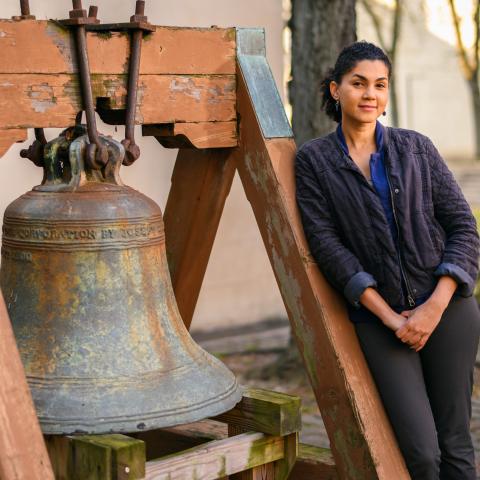This post appears courtesy of New Market Wilm. View the original post here
Q: There’s an interesting line in the oath you’re about to take, where you’ll swear to “respect the right of future generations to share the rich historic and natural heritage of Delaware.” What does that mean to you?
A: When you start to run for office, you think about where you came from, you think about your ancestors. I thought about some of my family members who were here before this country was even a country, and all the things they experienced, and about how we’re part of this big experiment. You want to contribute to that. [You want] to maintain all of the wonderful things going on in the United States and in Delaware, so they don’t go away. And a big thing that was on my mind was this idea that the whole thing we’ve been building toward all these years might be at risk — whether that be our democratic institutions, or the environment, or any of a number of things. When you decide to participate in government, I think you’re obviously buying into something related directly to those lines in the oath, and thinking about generations beyond ourselves.
Q: So is it possible you’re the only member of the General Assembly with a profile on IMDB?
A: No! Wait. Maybe? It’s not extensive!
Q: But it exists.
A: Yes, it exists. But I’m sure some of my colleagues have appeared in some interesting cameos.
Q: Well, we’re pretty sure you’re the only member of this General Assembly with a father who was a Pulitzer Prize-winning journalist. And these are interesting times for journalism and politics. I was wondering if you think your father, Norman the journalist, would have had any advice for Tizzy the politician?
A: Oh my God. He would have so much to say, I’m sure. And I probably would not necessarily enjoy a lot of it. My father’s persona, his legacy and his work loom very large in my life, probably now more than ever. I admire a lot of what he did, and who he was as a journalist, and what he tried to accomplish. And I think that making the choice to go into politics is an extremely different way of approaching the same issues that he analyzed and commented upon.
I think he’d probably be a little surprised. But I think this is still a way to carry forward his legacy and some of his ideas and the priorities. Which is not to say that when I go back and read his columns, I agree with him all the time. I’ve re-read some columns where he made comments and I’m just like… oh, wow. But I think he was such a great example of what a journalist should be – outspoken on injustices, but inscrutable in terms of his own personal politics.
It’s funny. Politics and journalism both exist in such an interrelated way, but they’re so different. And it’s definitely a tough moment for journalism. But I see rays of hope. I see people doing some good digging and good writing and calling out of things that need calling out.
Q: So what does the next week look like for you?
A: As always, there are plenty of meetings with folks both in the community and with various agencies. On Friday, I’m going to set up my office. I haven’t decorated it yet. I need to put up some family pictures to make it look like someone works there, because I will be working there, very soon. And I’m putting some finishing touches on my plans for the new session on Tuesday and the swearing-in ceremony. We rented a vehicle to bring some community members to the ceremony, to make sure they feel as at-home in Legislative Hall as I will hopefully be feeling.
Q: So who is going to swear you in?
A: I was really racking my brain, because it had not occurred to me that was a thing you had to choose. And you want it to be meaningful. I asked Richard Morse, and he said yes. He’s been an amazing civil rights attorney and the staff attorney for ACLU Delaware, where I’ve been on the board. He was instrumental in some of the education legal work that I’ve been very fortunate to be a part of. It’s going to be pretty cool!


